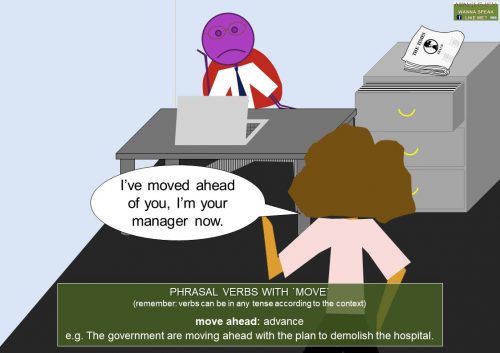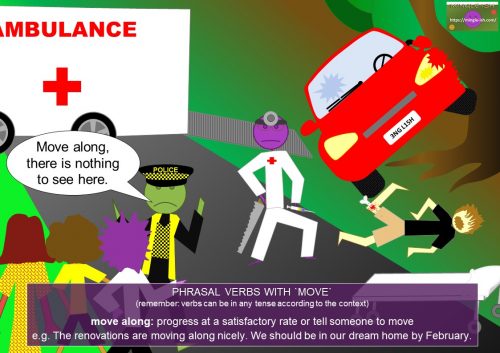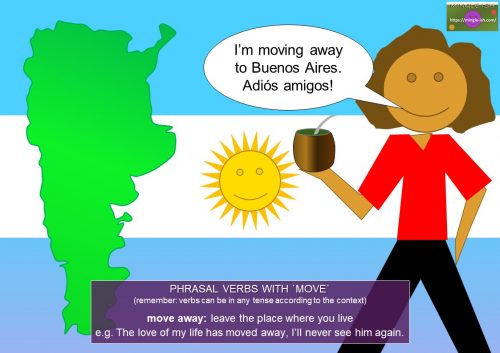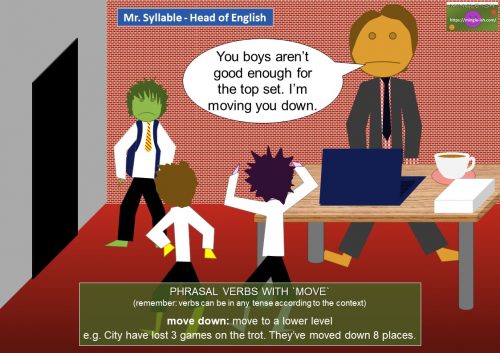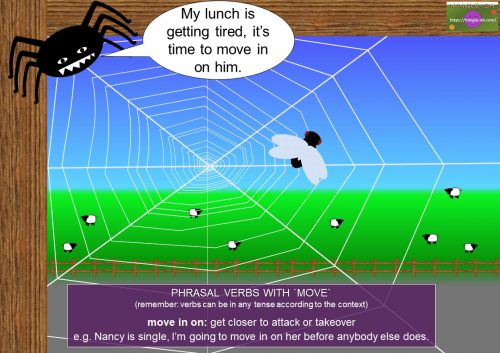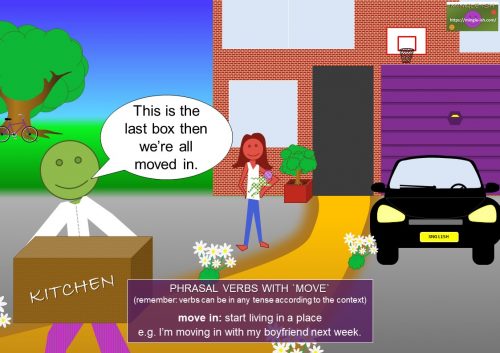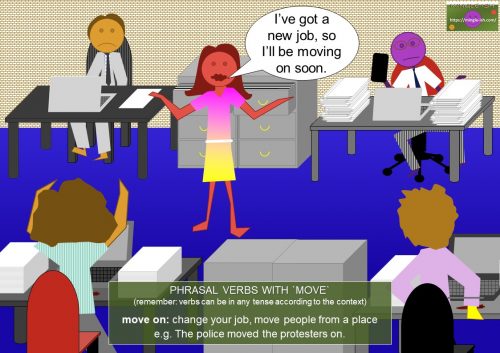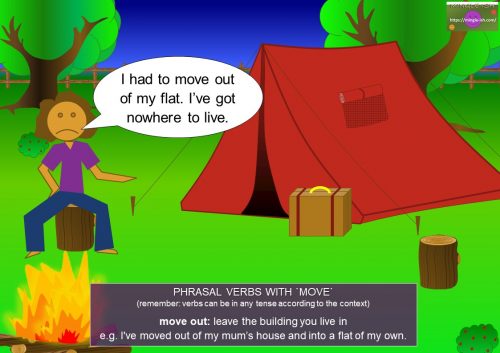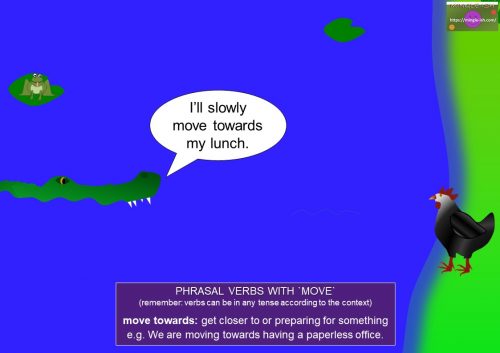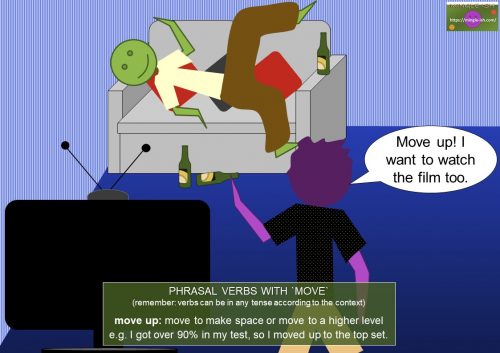The word ‘move‘ can mean many different things. As a verb, the meaning is to make progress or go in a specific direction.
For example:
- The project is moving forward at a satisfactory rate. (make progress)
- Harry moved closser to Sally. (specific direction)
Move is a regular verb. The past tense and past participle is moved. If you struggle to pronounce past tense regular verbs, click here for some guidance.
phrasal verbs with move
Phrasal verbs with ‘move’ include:
- move ahead
meaning – advance
example – The government are moving ahead with the plan to demolish the hospital. - move along
meaning – progress at a satisfactory rate or tell someone to move
example – The renovations are moving along nicely. We should be in our dream home by February. - move away
meaning – leave the place where you live
example – The love of my life has moved away, I’ll never see him again. - move down
meaning – move to a lower level
example – City have lost 3 games on the trot. They’ve moved down 8 places. - move in
meaning – start living in a place
example – I’m moving in with my boyfriend next week. - move in on
meaning – get closer to attack or takeover
example – Nancy is single, I’m going to move in on her before anybody else does. - move on
meaning – change your job, move people from a place
example – The police moved the protesters on. - move out
meaning – leave the building you live in
example – I’ve moved out of my mum’s house and into a flat of my own. - move towards
meaning – get closer to or preparing for something
example – We are moving towards having a paperless office. - move up
meaning – move to make space or move to a higher level
example – I got over 90% in my test so, I moved up to the top set.
picture examples
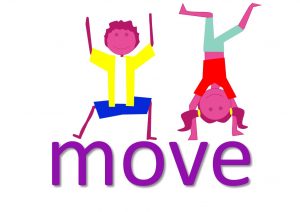
Let’s learn the meaning of the phrasal verbs that contain the verb ‘move’ in more detail and see some examples in use.
Did you know that many idiomatic expressions (idioms) in English also contain a lot of verbs? Just like phrasal verbs, idioms are a major part of the English language (slang in particular). They are used constantly amongst native English speakers and are handy to know and understand.
Now you’ve learnt all the phrasal verbs with move, how about learning the idioms with move too?
phrasal verbs courses online
If you’ve enjoyed this page, there are plenty more for you to look at. Click here to see the list of groups ready and waiting to be studied. Maybe you just like informal/slang English? Head to my useful tips and information section for loads more hints and tips to speak like a native.
If you really want to take your native speaking to the next level, how about taking a course? Here are some of the best ones:
